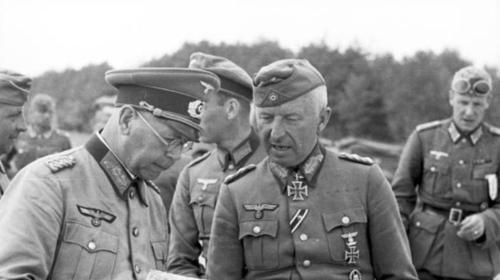Manstein was so convinced of his local superiority that he was completely underestimating the Soviets' formidable reserves and their astonishing speed of movement under adverse conditions such as bad weather and too far away from the railroad. Instead of rescuing the 6th Army, the result led to a further collapse of the German southern front in the winter of 1942.

If anything was achieved in his actions, it was to some extent delaying the red army's offensive in other directions. The price paid for this was the depletion of valuable armored forces during the Winter Storm, which could have been used to prevent the Reds from breaking through the Italian Don line. Therefore, the little pulling effect generated by the "winter storm" is actually more than worth the loss.
Judging from these facts, although Manstein has excellent tactical acumen, he lacks a strategic vision of the overall situation, and he has never been able to view the strength and merits of his enemy with an objective attitude. Hitler was equally responsible.
Although he had long anticipated the danger of a sudden change in the course of battle, in order to prevent the decline in personal prestige due to the annihilation of the 6th Army, he adapted the overall strategy to the tactical actions of front-line generals such as Manstein. The immediate consequence of his above-mentioned mistakes, in addition to Manstein's inevitable defeat, undoubtedly coincided with the collapse of the Italian army in the middle reaches of the Don River.